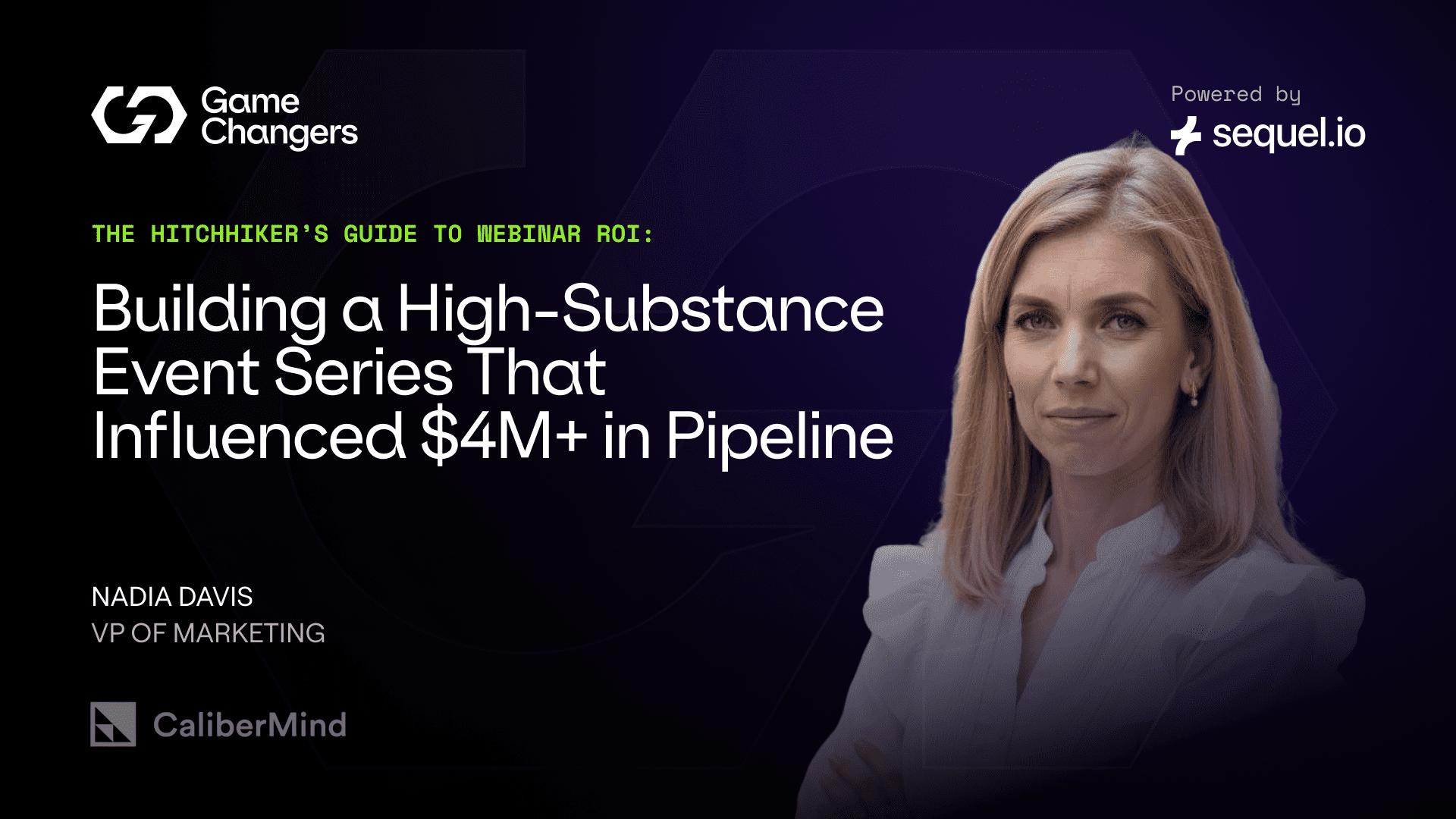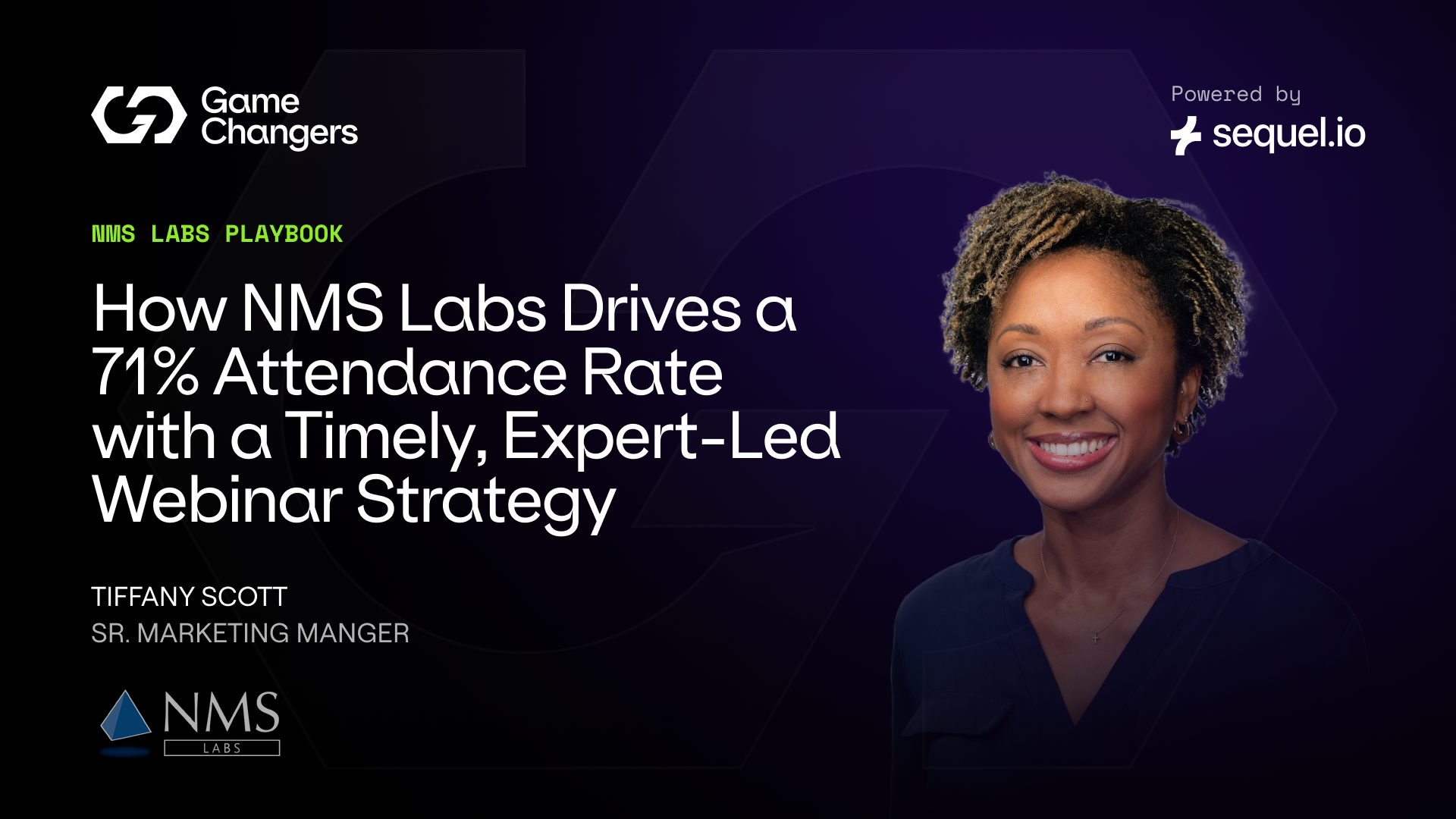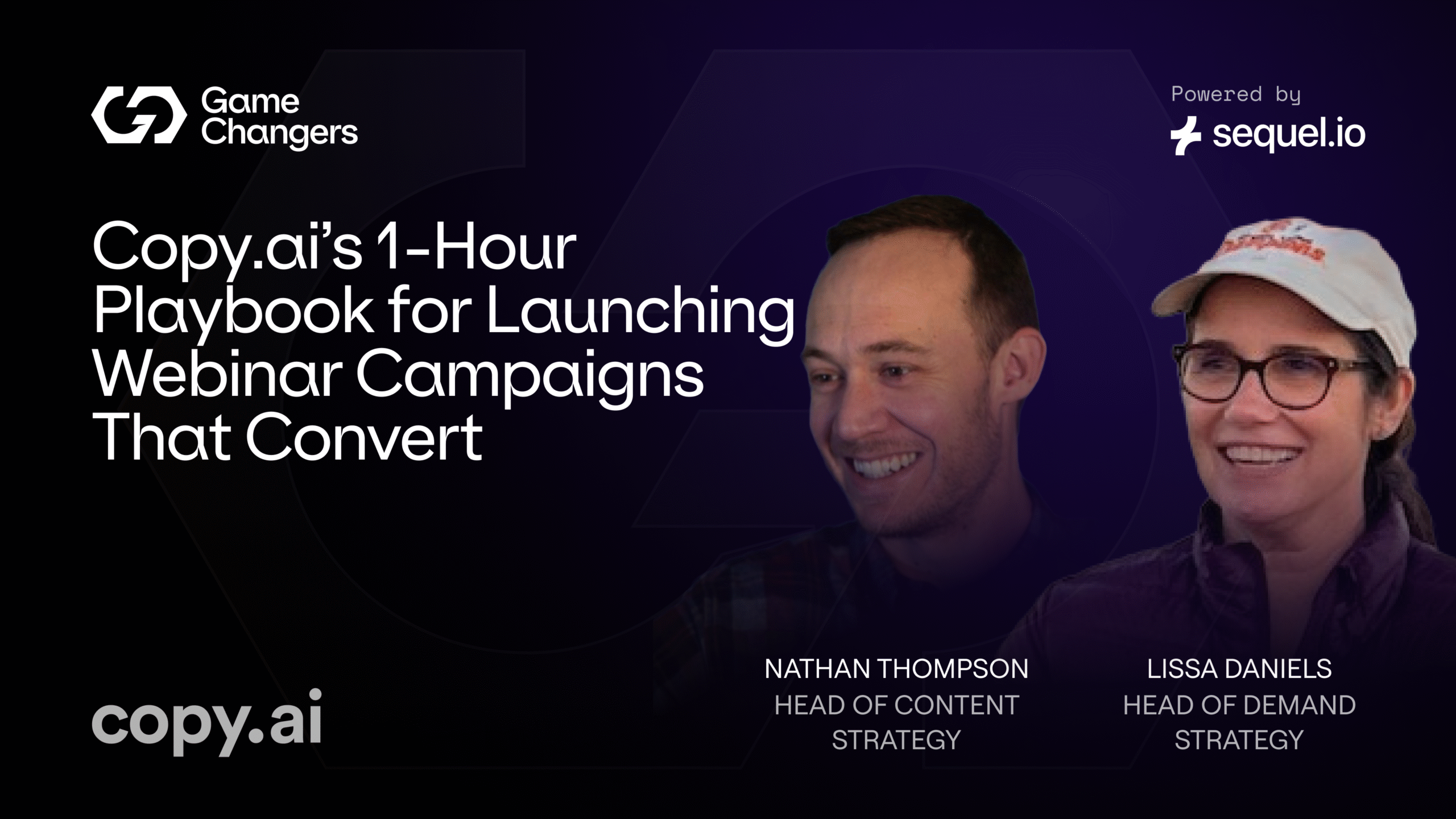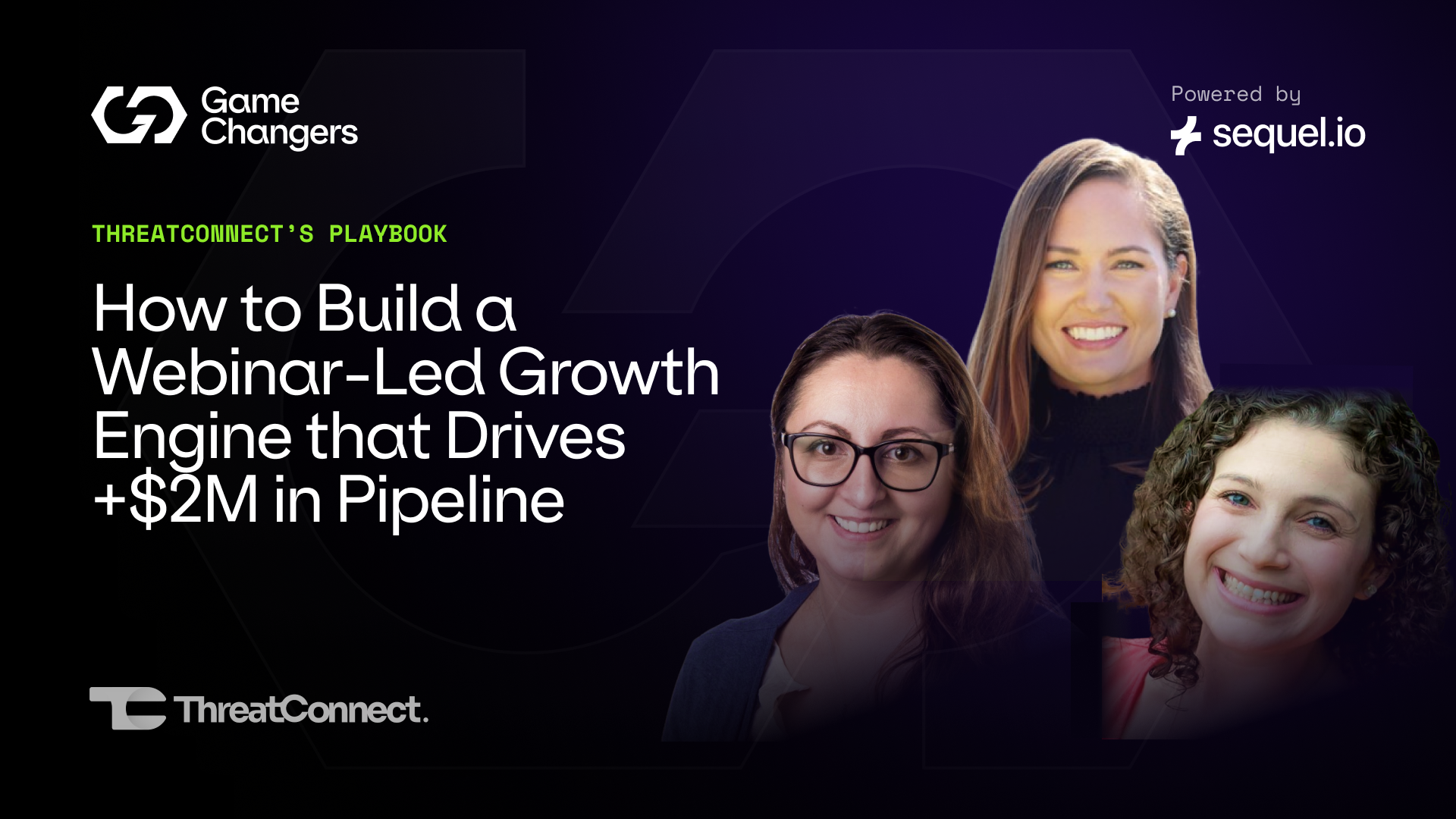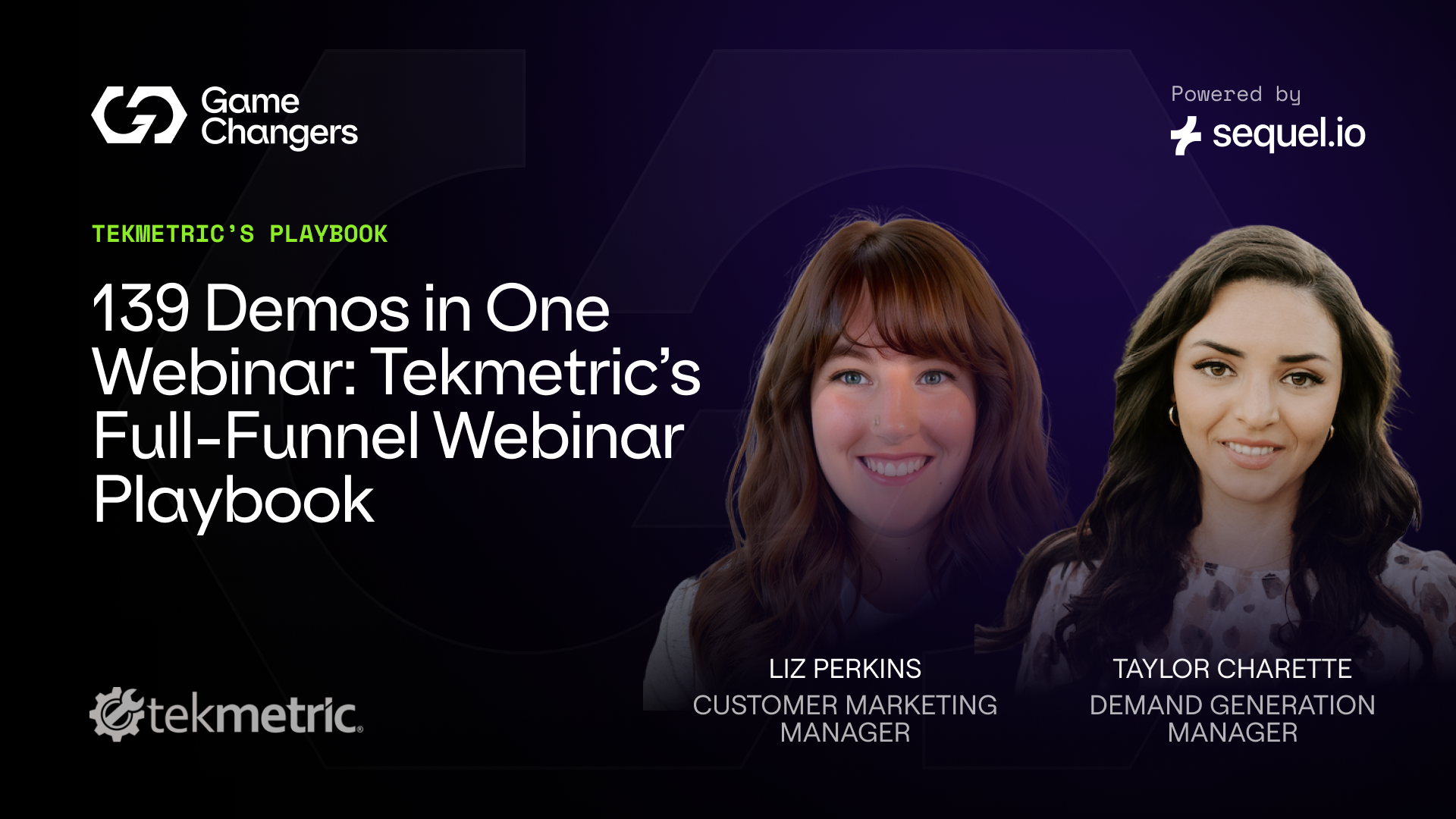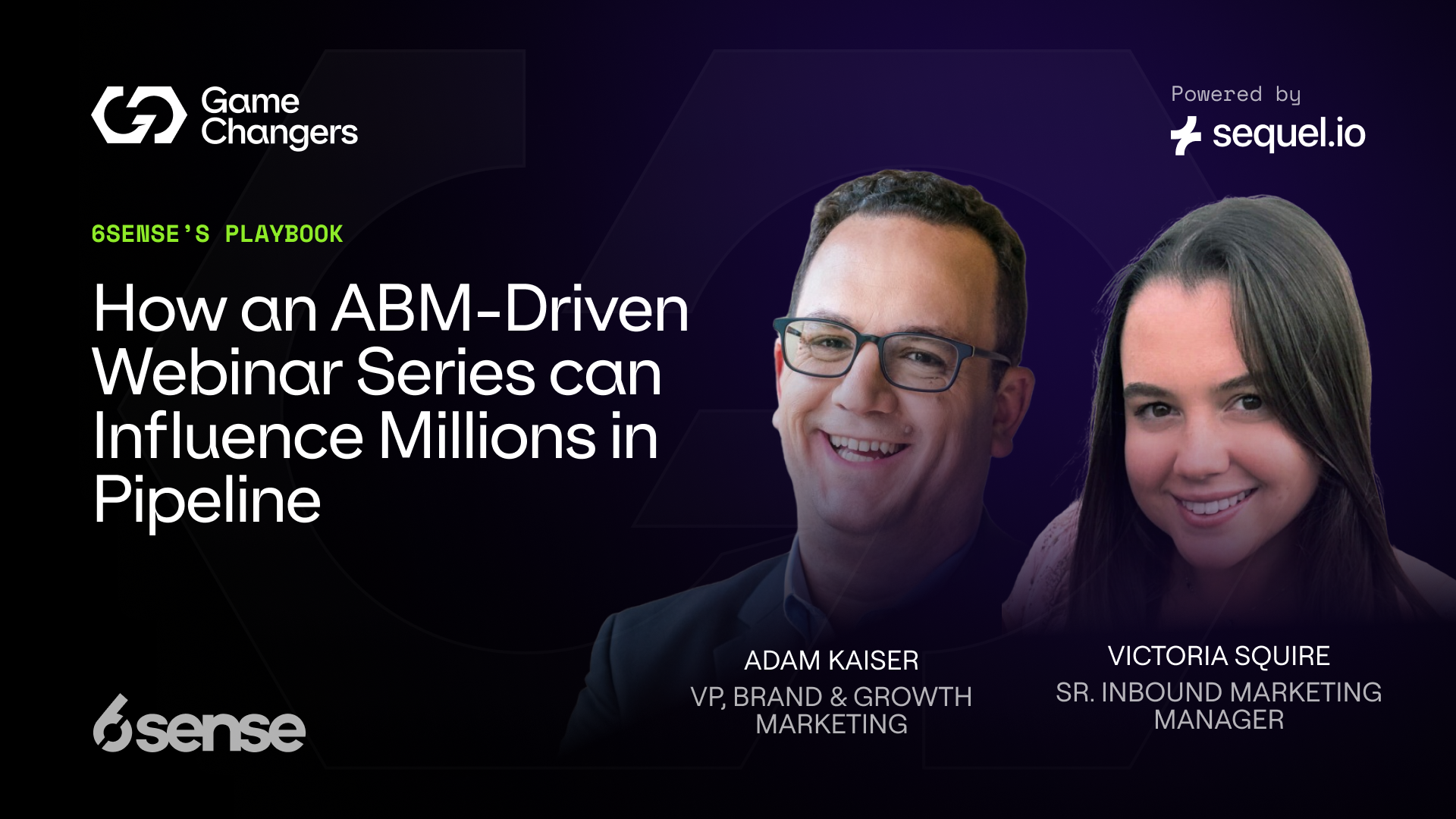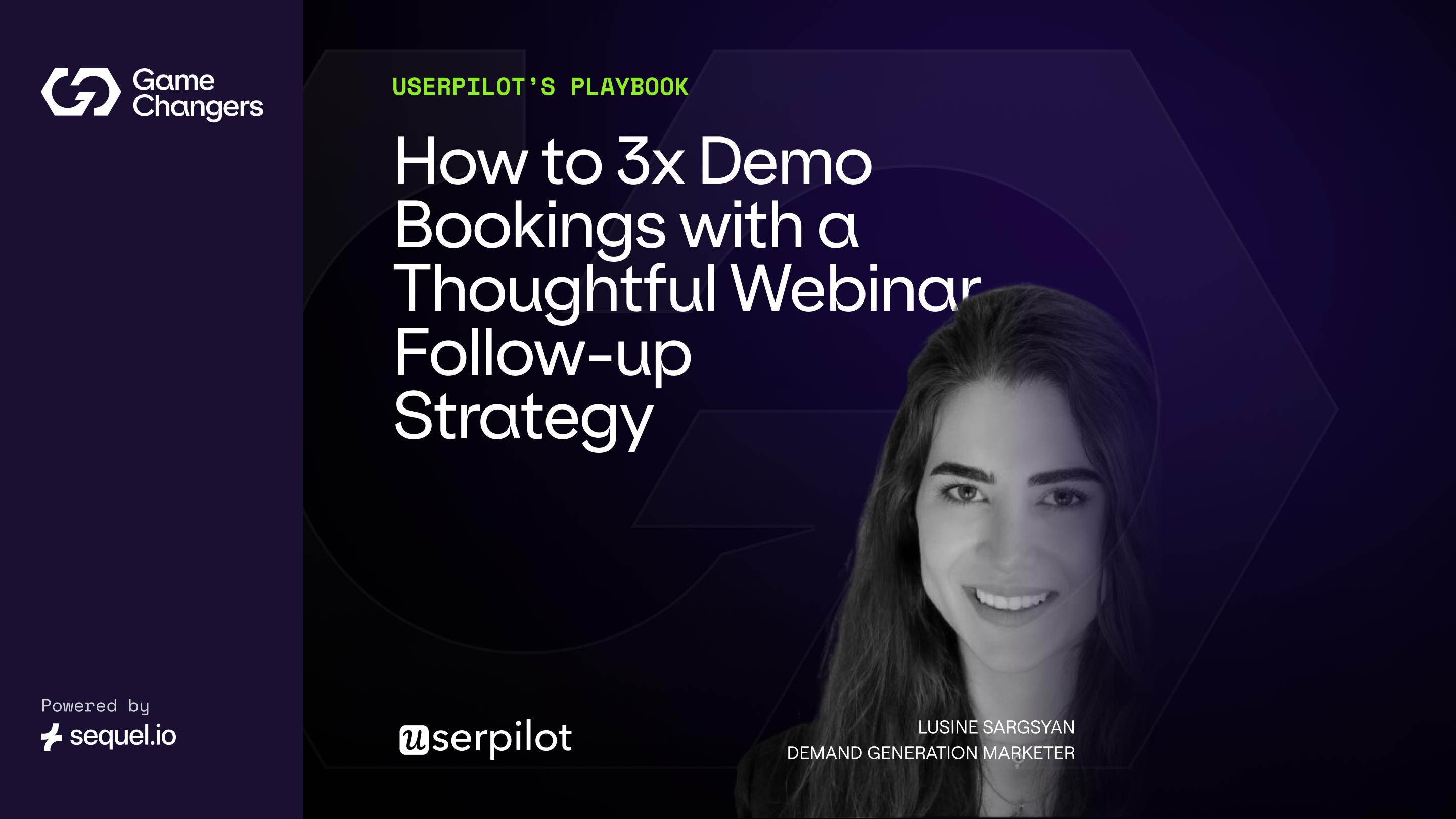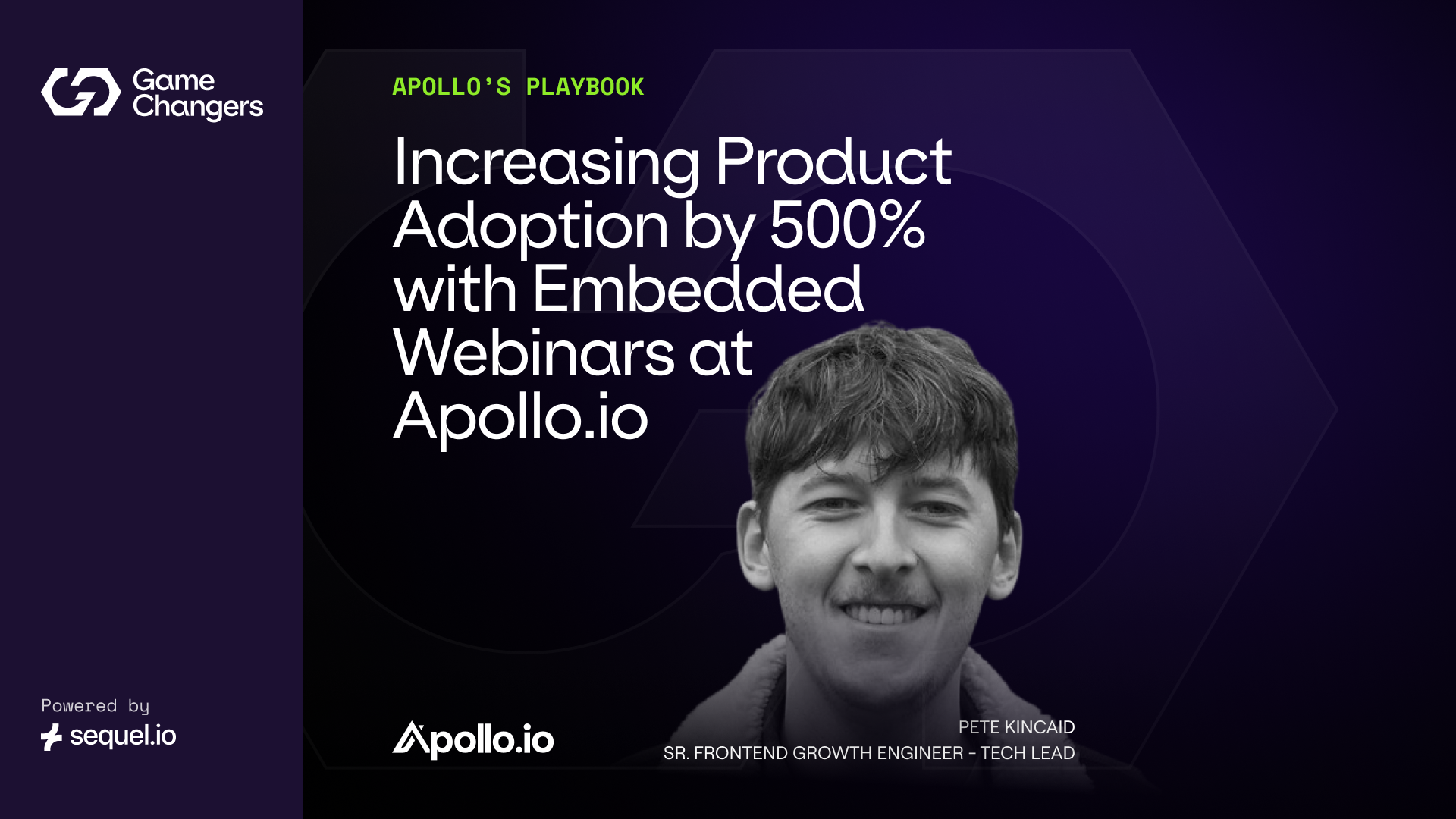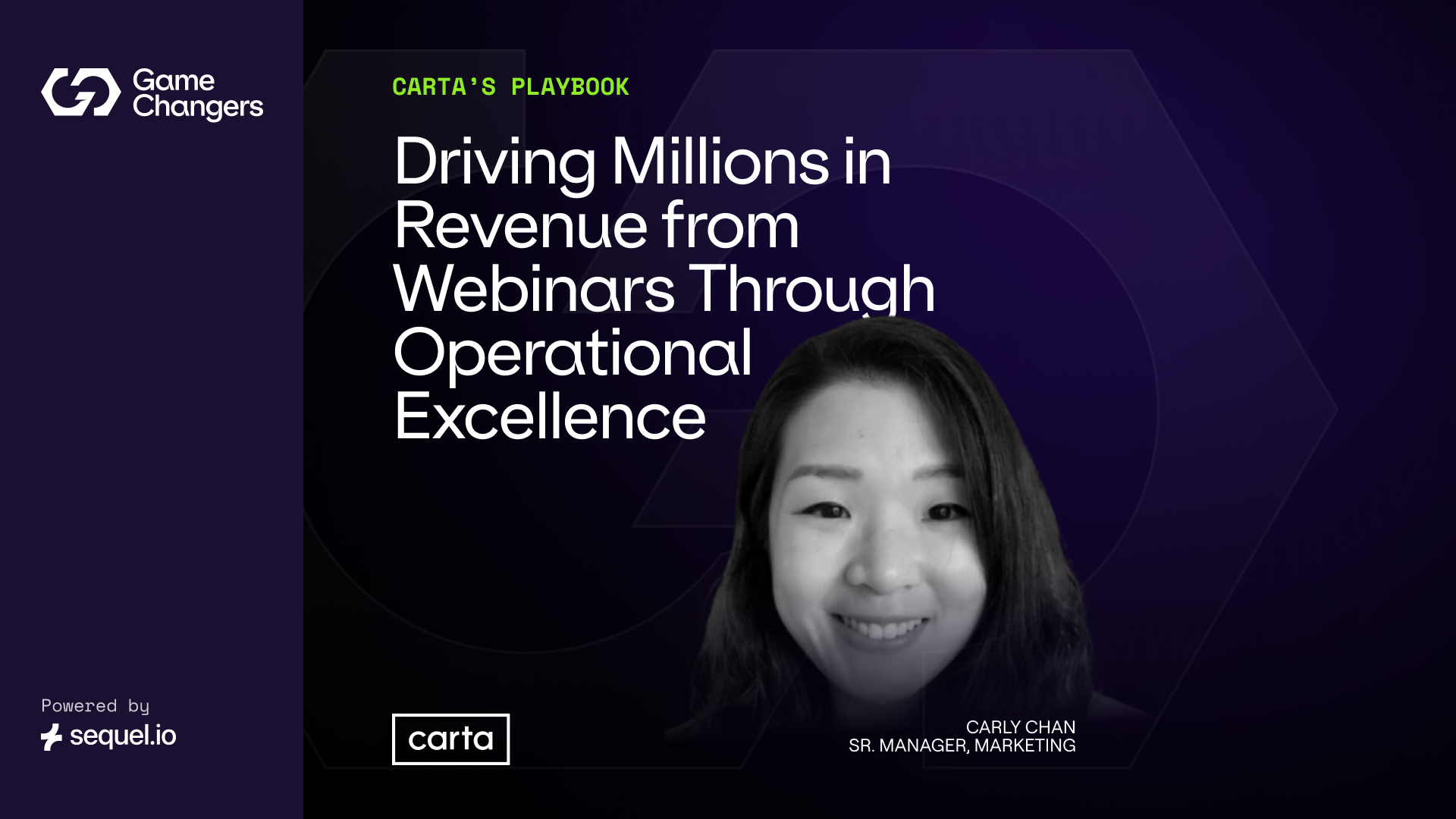Imagine you start using a new software tool. You know about the key features and the benefits you’re supposed to get out of it but you haven’t been in the trenches to achieve those results. You log in for the very 1st time and you’re invited to join a tactical product webinar related to the core use case you’re looking to use it for.
You join almost instantly, ask your questions directly to the product expert, and realize… this tool has even more potential to drive your success as a revenue professional than you had thought. Now, in less than 30 days, you’ve decided to make use of the entire solution rather than sticking with the limited free version.
This scenario is exactly what Apollo is observing their customer base do.
Apollo has built up a customer base of over 3 million loyal users and has become an influential brand in the sales intelligence space. Despite their major successes, they wanted to find a better way to increase product adoption and convert more of their free users into paying customers, faster.
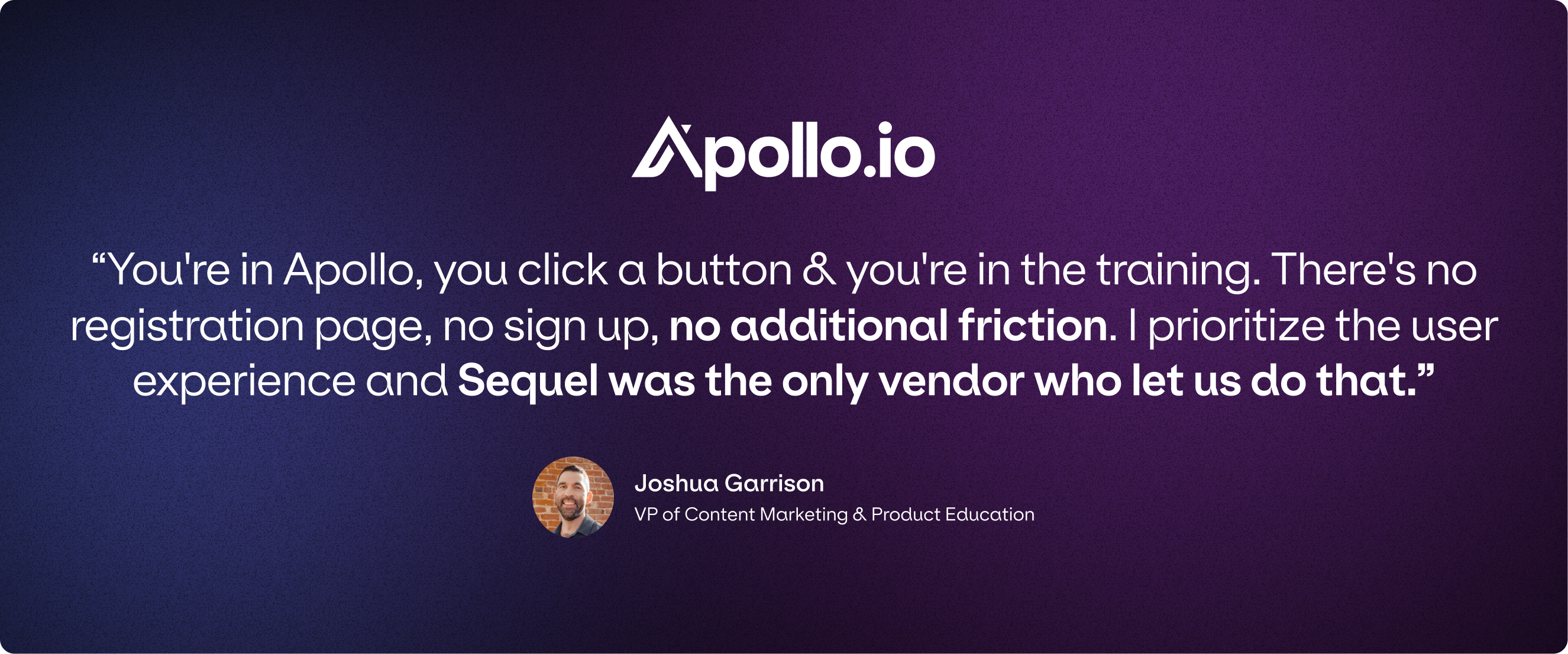
With Joshua Garrison, VP of Content Marketing & Product Education, & Pete Kincaid, Sr. Growth Frontend Engineer, as a driving force, they found that hosting product webinars directly in the Apollo application was exactly what they needed to grow more rapidly.
After spending time experimenting and analyzing what was truly driving results, Joshua & Pete agreed to share their product webinar playbook with the tactics they have implemented to achieve:
- 500% increase in product adoption
- 5x more meetings booked
- 8 webinars per week averaging 176 user questions
Let’s dive in!

Apollo’s leading product webinar strategy
Apollo’s success with their product webinar program wasn’t accidental but meticulously choreographed – the results just turned out even better than they imagined.
Their strategy, in the beginning, was simple: initiate a small-scale program to introduce educational product content through webinars hosted within their platform. The goal of the experiment was to provide a native and seamless experience to the users, thereby nurturing trust and evoking product adoption.
Today, they’ve expanded their original strategy to create more targeted sessions across different user profiles after seeing so much success from their pilot program.

Note: If you look up ‘the best time to host a webinar’ you’ll see that Joshua & Pete didn’t randomly choose when they would host each session. They looked to industry data for the times when people are most likely to attend and be highly engaged.
Building the foundation
You may think that the initial setup for hosting webinars directly in an application is impossible. On the contrary – Apollo’s team created a truly customized and streamlined experience for their audience using Sequel’s robust API. Since users are already logged into the product when they see an upcoming webinar, they can attend a session with the click of a button rather than having to add all their details to a registration form.

The Apollo team can then eliminate barriers to product adoption and still receive rich user engagement data across their platform and webinar program. This setup helps new users engage with the product and team all while being immersed in the Apollo brand and just one step away from applying their learnings.
An unparalleled in-app webinar experience
Since the goal of their webinar program is to increase product adoption and convert free users into paid users, the typical marketing distribution channels don’t always make sense to tap into. That being said, the key to getting their target audience to attend these webinars sits within the product.

When launching a new webinar, Joshua and Pete will promote the session using in-app banner announcements, chatbot pop-ups, and even email outreach. They also include the links to their webinar homepage within Apollo’s help center. However, they take their distribution to the next level by leveraging their internal product database to target the users most likely to be interested in the content of each webinar.
For example, someone who is just coming into the product might want to learn the basics of creating an email sequence. In comparison, a seasoned Apollo user wouldn’t necessarily want to tune in if they’re already an expert.
Note: Using your product usage data, you can target specific users based on key use cases that are more relevant to them and support their growth within the platform.
By hosting webinars directly in Apollo’s app, the team is able to capture the attention of people from within the tool and help them easily go back to apply the new learnings they just obtained from tuning in live.

During each product webinar, Apollo users are highly engaged knowing that their knowledge of the product directly reflects their performance as a salesperson or marketer. From a business perspective, people who attend an Apollo product webinar have a higher NRR than those who don’t.
- Publishing polls helps Apollo understand what’s most important to their customers so they can navigate the conversation based on the people who attended.
- The chat helps bring together their community of GTM professionals to enable people to connect, learn, and grow together.
- The Q&A averages 22 questions submitted per 30-minute session as people start applying the insights shared to their unique situations and playbooks.
- Standardized Decks and talk tracks are used for every session to streamline internal efforts and engage their audience based on past data points and best practices.
- Two hosts are always involved in the webinars – the primary instructor and someone dedicated to answering questions quickly in the chat.
Note: The webinar program had such a significant impact that they even recommend that new employees attend as part of their onboarding process.
Leading with data & valuable content
Data is the name of the game at Apollo. Content isn’t created without understanding how they can best enable their user base to become Apollo experts and leverage it to excel in their roles. Initially, a lot of their content stemmed from frequently asked questions from their users and areas of the product that weren’t being adopted as quickly as they had hoped. From there, these insights and questions were translated into topics for their webinar program.
Many of these recurring topics and questions that they tackle on an ongoing basis, come up when someone is a new user and is still familiarizing themself with Apollo’s features and workflows. It’s only natural. But to make sure that every new user has the support they need right when they sign up, the team invites them to join one of their upcoming webinars and even gamifies their onboarding experience to increase product adoption.
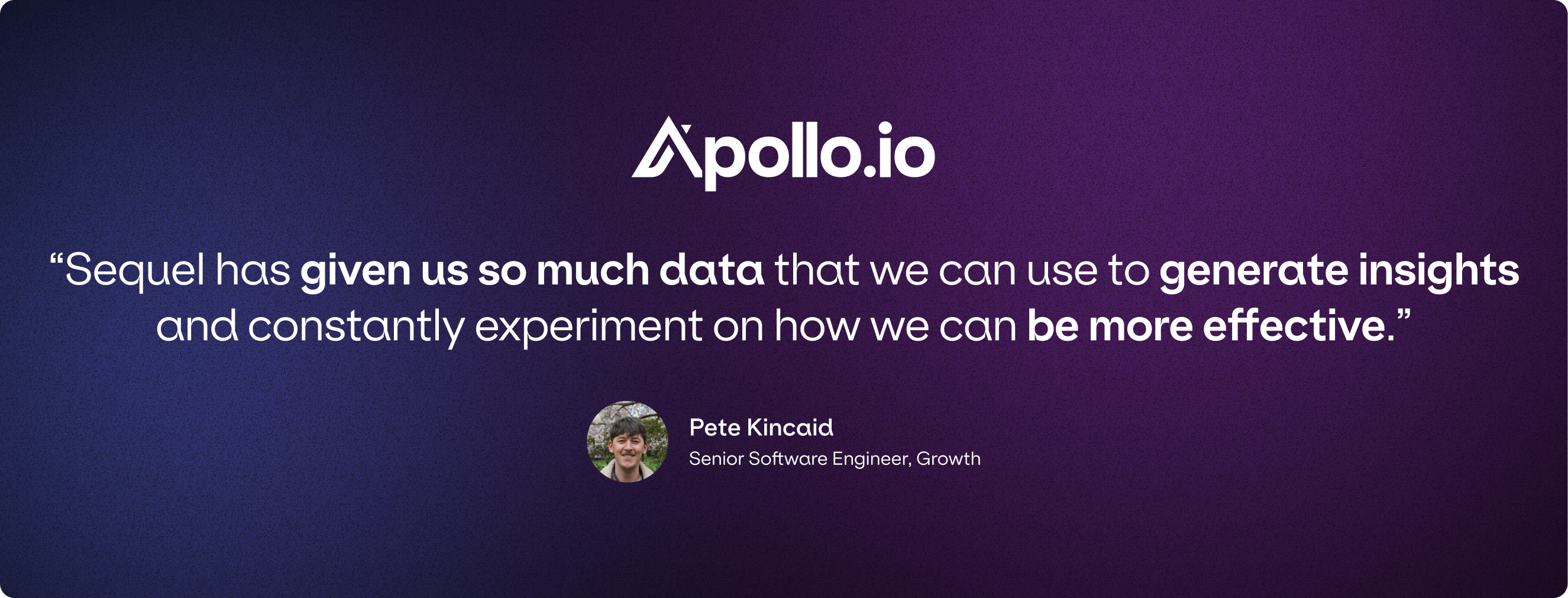
After every webinar, the team looks back at feedback from their audience, performance metrics, comments and questions submitted, and poll results to further tailor their content and make sure they were providing the maximum value at the right time.
For example, they use post-attendance emails to send users a typeform survey asking about the webinar, what more they want to learn, etc. This gets fed into a Slack channel so they can discuss each piece of feedback given. The team has gotten almost 300 survey responses and is currently sitting at an 8.93/10 rating.
Not only does this help the team improve the experience and how they present the content in each session, but it also fuels their webinar content strategy and further drives product adoption.
Note: Joshua and Pete are always experimenting with new tactics, messaging, and content to continue incrementally growing their webinar program’s impact. Without running experiments, they wouldn’t have been able to scale their program to what it is today.
Replicating Apollo.io’s playbook
When you provide valuable content in a format where you can fully engage with your audience in real-time and remove any barriers from diving right back into the product, your product adoption is likely to skyrocket.
Joshua & Pete have seen some stellar results from embedding their product webinars directly in within their product, resulting in:
- Increase in product adoption by 500%
- 5x more meetings booked
- 8 webinars per week averaging 176 user questions
Free Apollo users are even more likely to upgrade their subscription within the first 30 days they enter the platform than ever before in Apollo history. This shows the immense value and high standards Pete & Joshua hold for their content, production, and technology to enable their customer base to quickly become product experts and reach their own professional goals.
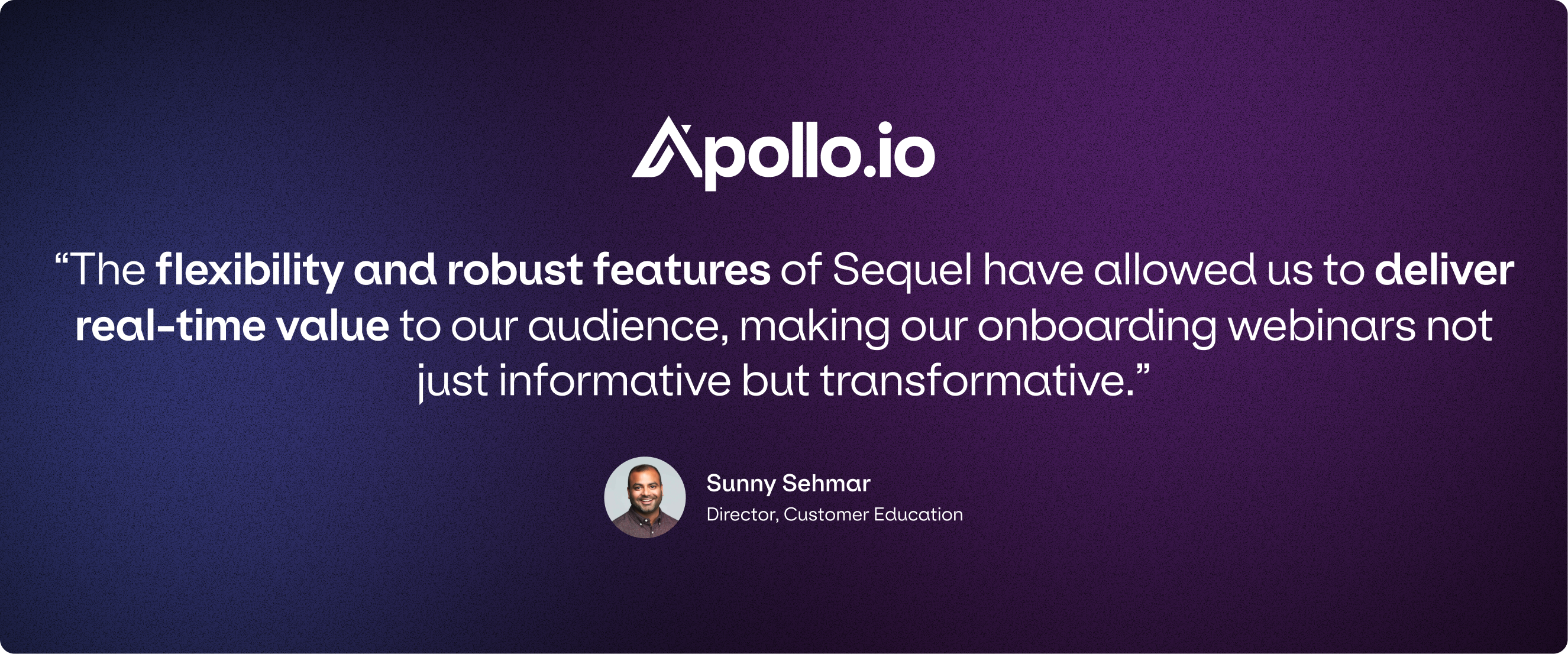
Advice from Pete: When you build a product webinar program start on a smaller scale, be ready to experiment, and always welcome customer feedback for continuous refinement and improvement. Embarking on the journey of implementing product webinars could be challenging, but as Apollo’s success shows, the reward on the other side is incredibly promising.
Now that you have Apollo’s product webinar playbook that helped them achieve a 500% increase in product adoption, it’s time for you to do the same. If you want to see how you can embed your product webinars directly in your solution, we’d love to show you how Joshua & Pete use Sequel to achieve these results. Find time with us to see how you can use Sequel to replicate Apollo’s playbook within your own organization.





